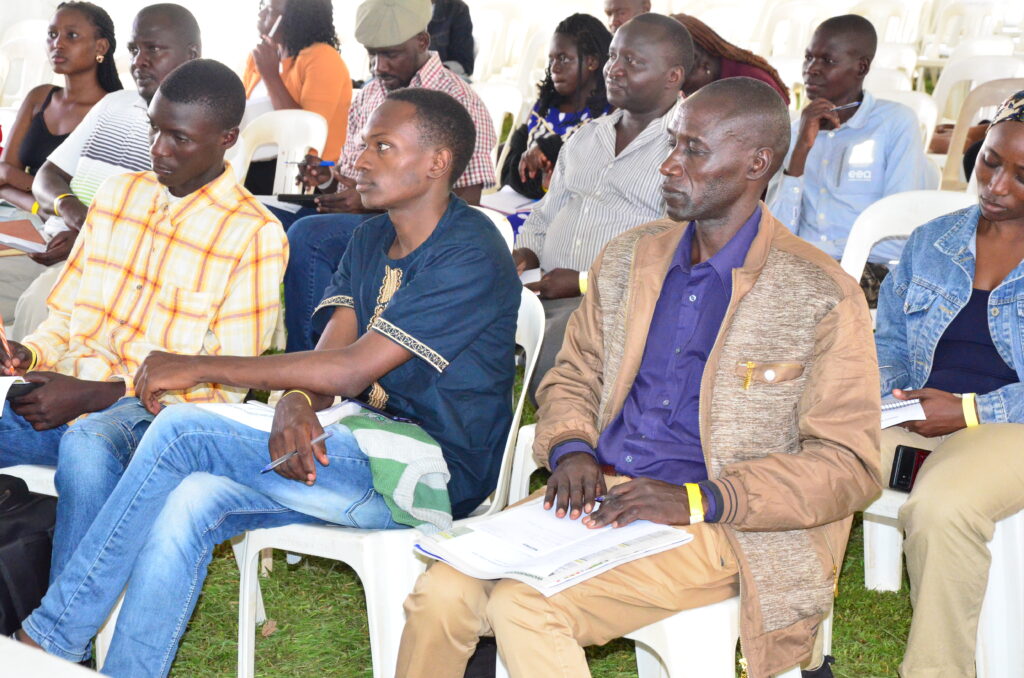By Francis Emukule
Vicent Sebutemba, a seasoned fish farmer from Marine Heights Limited, took centre stage to educate attendees at the Harvest Money Expo on the different ways of generating income through fish farming. His training aimed to instill in farmers a deeper appreciation for fish farming as a viable business venture and equip them with practical skills essential for success in the industry.
One of the primary objectives was to underscore the importance of knowledge in fish farming business endeavors. Sebutemba emphasised that understanding crucial factors such as the type of system to adopt and the initial requirements for starting out can significantly impact one’s success in the field. Key points highlighted during the session included the significance of selecting an appropriate culture system tailored to individual circumstances. He delineated various options, including earthen ponds, concrete tanks, dam liners, and cages, each with its own set of advantages and considerations. “System design and construction are paramount,” Sebutemba stressed, emphasising the need for meticulous planning and execution.

He advised farmers to carefully choose species suited to their selected system, recommending tilapia and catfish as viable options for their adaptability and market demand. Addressing practical aspects, he outlined steps for setting up earthen ponds, emphasising site selection, excavation techniques, and the importance of nursery tanks for protecting young fish from predators. He also underscored the critical role of stocking density and water quality management in ensuring optimal fish growth and health. In context, it takes 1000 litres of water to produce one kilogramme of fish. Additionally, stocking should be carefully determined based on water availability and feed resources.
Richard Ddungu, a research assistant from NARO, also added that in a pond, the water level should ideally reach at least your waistline. This depth facilitates easier regulation of water temperature based on external conditions. The population of fish in a pond is directly influenced by the volume of water it contains. Harvesting strategies and value addition were also discussed, with Sebutemba highlighting the importance of designing systems for easy harvesting and exploring opportunities for diversifying revenue streams through products like smoked fish and value-added offerings.
Throughout the session, he also emphasised the need for meticulous attention to detail, from feed quality and storage to avoiding overstocking and ensuring proper oxygenation within ponds. He urged attendees to seek expert advice and conduct thorough research to optimise their chances of success in the dynamic field of fish farming. Uthuman Mukasa is three months into fish farming with 10 ponds. His participation in the Harvest Money Expo has given him confidence; there are more people in the business, and secondly, it has added to his knowledge about fish farming. “Being here has given me confidence that I am doing the right thing because, as far as feeding is concerned, I have done well, and I also know that there is a market for fish,” stated Mukasa. The event provided attendees with invaluable insights and practical knowledge aimed at empowering them to navigate the complexities of the fish farming business with confidence and competence.





